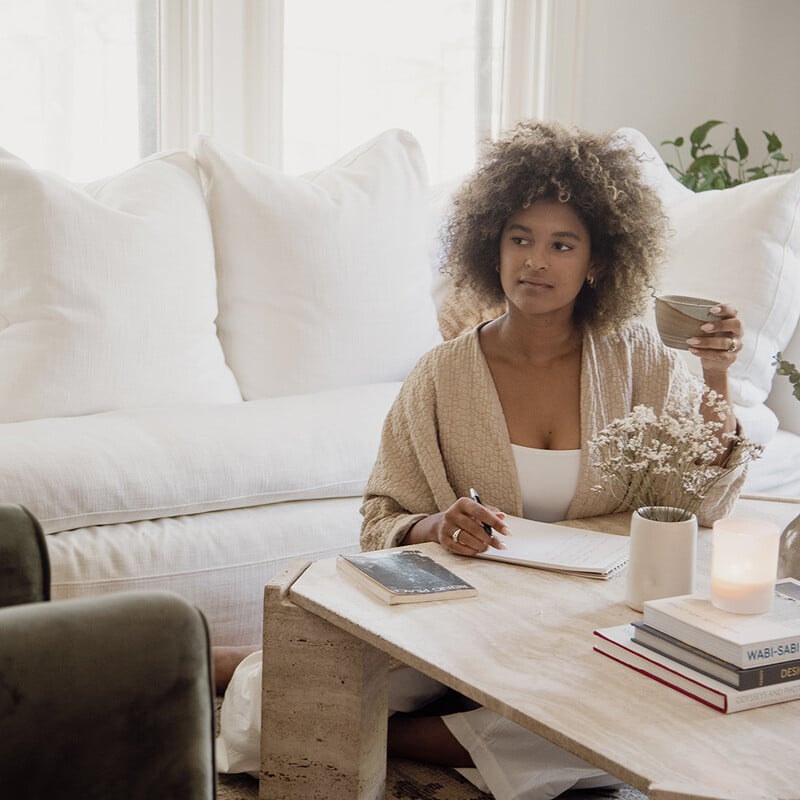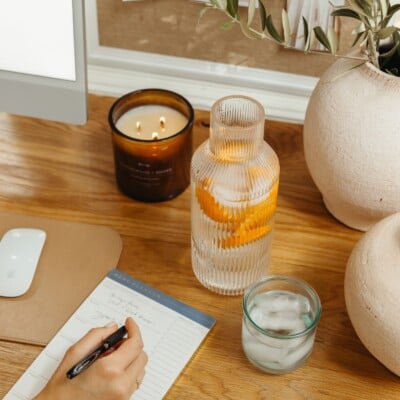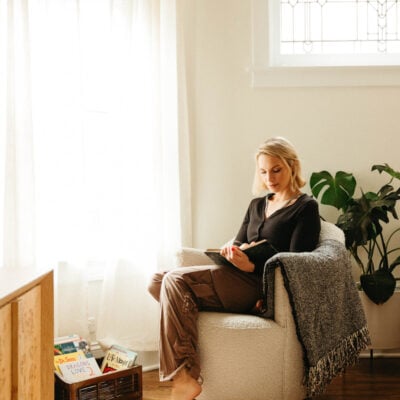In my early 20s, I sought alone time wherever I could. I traveled alone, went to the movies alone—I even took myself out to dinner alone. Of course, I shared these experiences with friends, family, and partners on occasion. But more often than not, it was my own company I prioritized. I loved the freedom of not having to adhere to anyone else’s schedule. I could wander around European cities without an itinerary and linger in my favorite museums for far longer than my friends had the patience for. It was my time to be selfish and attune solely to my own experience. But in recent years, my relationship with my alone time shifted.
Featured image from our interview with Riley Reed by Jenn Rose Smith.
How to Take Back Your Alone Time
As I’m wrapping up the final years of my 20s, I’ve begun to notice new insecurities cropping up. I’m more aware of the moments I’m walking alone without my partner or grabbing coffee without a friend for company. I notice a shock of unfamiliar self-consciousness that calls me to reach for my phone or pop my head into a book—all to make me look a little less alone.
Having journaled and worked through the experience with a therapist, I’ve come to see these behaviors as a product of the pandemic. Without warning, we were dropped into a foreign state of isolation. And because of those many months I went without seeing family or friends, I had developed a hypersensitivity to the moments I found myself, once again, alone.
Trust me: your presence alone is company enough.
But in the years since, my daily habits and routines have returned and I’ve learned to take back that love I once had for my alone time. At 28, I’ve even come to understand that the experience of ‘me time’ as a sort of luxury. If you’re looking to recapture that sense of yourself, and to spend your alone time more meaningfully, keep reading. Trust me: your presence alone is company enough.

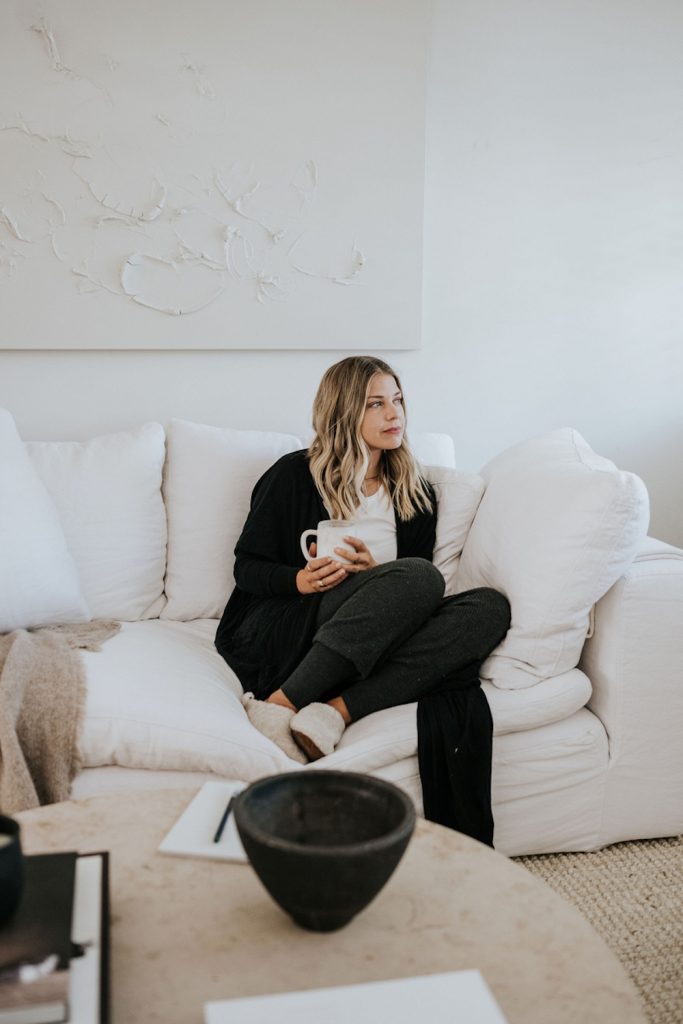
Signs You Need Alone Time
Before we dive in, let’s address: how do you know if you need more alone time? For many people, it’s easy to define our self-worth through the value and time we offer others. Particularly as women, we’ve been conditioned to believe that our acceptance is dependent on what we can do for our partners, parents, children, siblings, etc. In putting others before ourselves, we’ve learned to connote alone time with an element of selfishness.
So how do we know if need more alone time when we’ve been taught to avoid it? First, tap into your thoughts and gain a baseline sense of where you are emotionally. In a journal or simply in your head, reflect on the following questions:
- Do the things that once seemed fun no longer interest you?
- Are you desperately seeking quiet anywhere you can get it? (The bathroom, the car, etc.?)
- Are you looking for an escape from stressful situations through unsupportive habits?
- Do you get overwhelmed by small annoyances, stressors, or disturbances to your routine?
- Are you feeling easily frustrated by your relationships or interactions with friends and family?
Notice how you respond to these questions and what your answers may indicate. While knowing whether or not you need alone time can manifest in different ways, becoming easily overwhelmed, feeling desperate for quiet, and not finding enjoyment in activities that were once fun can all be signs that you need to carve out some alone time, stat.

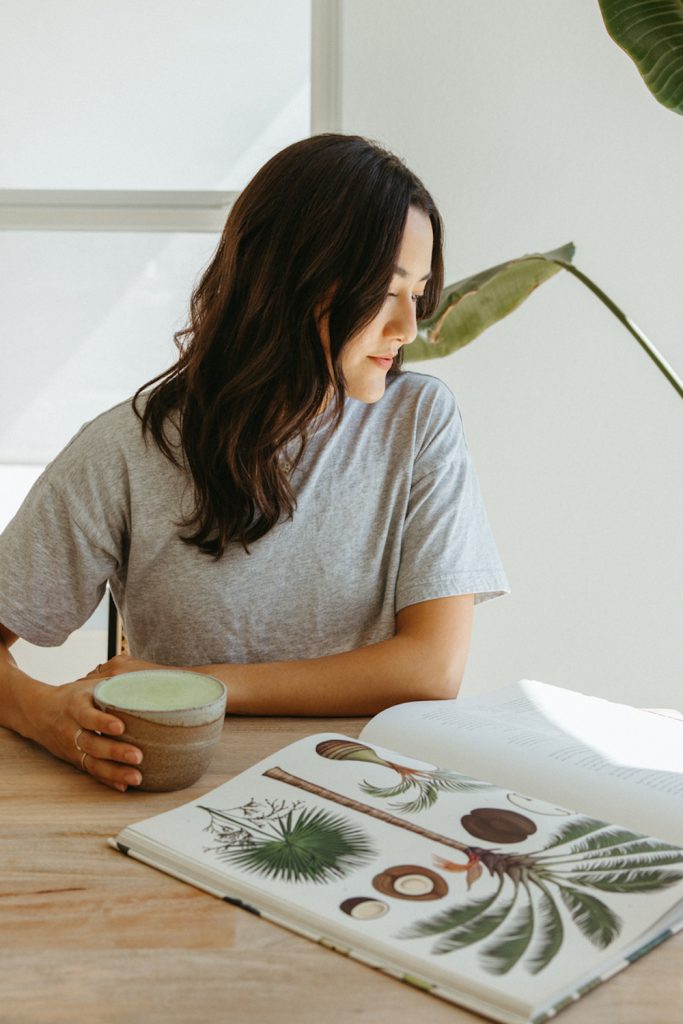
The Difference Between Feeling Lonely and Being Alone
I know you know the feeling: While it sounds nice in theory, when our partners, roommates, or family are away and we have an empty house to ourselves, it can be hard to know where to begin—and the experience can feel quite lonely. We may dive straight into work or space out on our phones. As much as we may have wanted to spend time with ourselves, in our hyper-connected world, it can be hard to know where to begin.
Being alone is a physical state whereas loneliness is an emotional state.
But being alone doesn’t equate to loneliness. In fact, the two states are quite different. Put simply, being alone is a physical state whereas loneliness is an emotional state, describing the feeling of being separate from others. Have you ever found yourself in a room filled with people you can’t connect with? Or surrounded by others who don’t allow you to express your true self? Both can be signs of the emotional state of loneliness. But, setting out with the intention of experiencing alone time can be a positive and fulfilling.
To experience more intentional alone time, use the following questions and prompts to help guide you:
- How do I want to feel after this period alone? (Rested, rejuvenated, less stressed, etc.)
- What is an activity I’ve wanted to do for a long time but have deprioritized due to others’ needs?
- Write a list of things you enjoyed doing as a kid. Do any of those still resonate?
- What is something you would do if you only had yourself to impress?
- What does the perfect day look like to you?

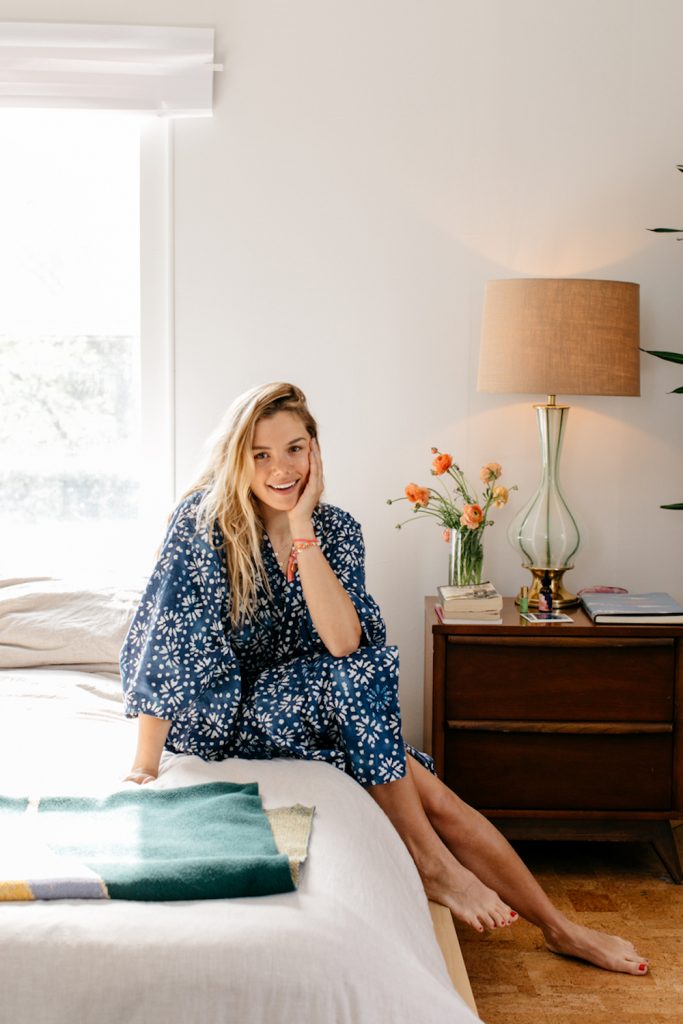
The Benefits of Alone Time
I get it (and hope I’ve established it by now): alone time can be scary! It can feel awkward and uncomfortable to do something society expects us to reserve for friends, family, or romantic partners. Because of this, many of us have built an internal narrative that suggests it’s weird or strange to go to dinner alone, take a trip alone, or simply enjoy your own company. But there are plenty of benefits associated with alone time to suggest otherwise.
You Connect Deeper With Yourself
When we carve out time for ourselves, we have the opportunity to learn more about ourselves. Given this space, we can get quiet and think deeper about our emotions, hopes, dreams, and ideas. Though listening to others is an important social skill to build, it’s just as crucial that we develop our own perspectives to help us think deeper about our lives.
You Can Be More Present for Others
A necessary cliché: we can’t pour from an empty cup! Mothers know it best that when we’re constantly attending to the needs and wants of others, we push our own to the side. But self-care is a crucial element of supporting our well-being—and it’s not simply bubble baths and face masks. If the resources are available to you, book a baby sitter or tell your partner you need a night to yourself. It can even look like shifting your perspective. I think about the time I spend working out as me time, helping me do everything in my life with a more positive perspective.
Remember: schedule in regular alone time can help you improve your relationships with others. It’s a win-win.
You Can Come Up With Creative Solutions
While I will always go to my sisters, girlfriends, or partner for advice, as I’ve gotten older, I’ve learned to look within myself first. Often, we’ve been told that the answer lie outside of ourselves (through social media, the internet, etc.). But really, much of what we need can be found through our own perspective and experiences—we just need to get quiet enough to hear it.
You Can Explore Freely
Are you afraid to try things because of what others might think? Do it alone! I started taking sewing classes by myself simply because it was a skill I wanted to learn. And though, yes, many of my creations have been terrible at best, the experience has reminded me that I don’t need to wait for anyone’s permission to do what brings me joy.
You Can Be More Productive
One simple way to limit distractions in your life? That’s right: alone time! When I’m in the mood to plow through my personal to-do list, I love to put my phone on Do Not Disturb and get to work. It’s fulfilling, confidence-boosting, and energizes me like nothing else.

